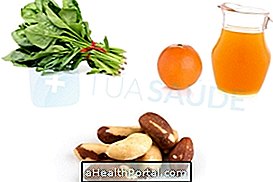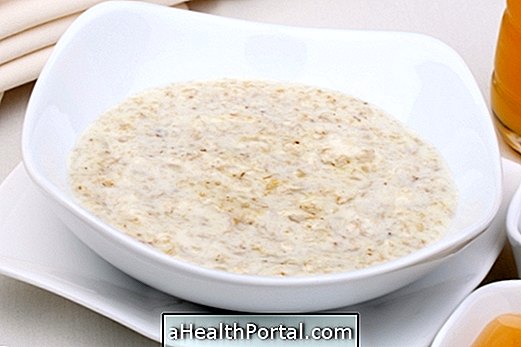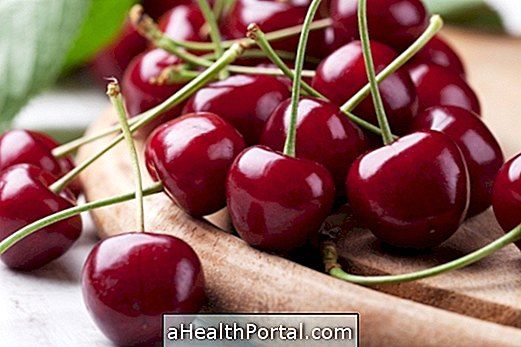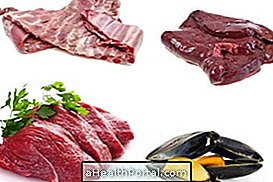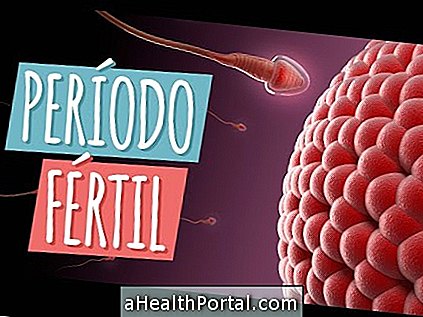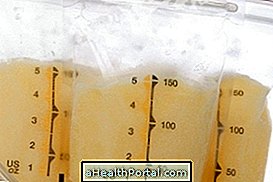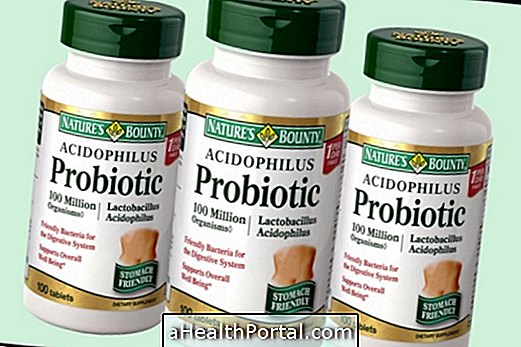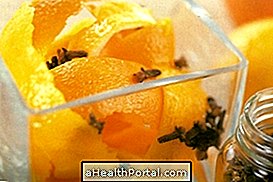In the case of gestational diabetes, what should be eaten are preferably foods with a low glycemic index, such as:
- Fruit always with rind and bagasse and always accompanied with a toast with cheese mines, for example;
- Raw vegetables at all meals, such as a salad, for example, to slow the "in and out" of the blood sugar, keeping their levels constant.
- Avoid foods with few nutrients and too much carbohydrates or fats, such as frozen ready meals, sweets such as guava, and other and fried foods and overall throughout pregnancy.
Gestational diabetes, in general, only persists during pregnancy, and glycemia usually returns to normal after delivery. However, the woman has a higher risk of developing type 2 diabetes about 10 to 20 years after giving birth.
Watch this video from your nutritionist and learn more about controlling gestational diabetes:

What you can eat in gestational diabetes
Some examples of what you can eat in gestational diabetes are:
- Vegetables and vegetables such as chard, eggplant, cauliflower, spinach, peppers, cabbage, parsley, tomatoes, garlic, broccoli, beets, carrots, chuchu.
- Oats and cereals high in unflavoured fibers;
- Lean meats with low fat, such as skinless chicken breast, fish with white meat, rabbit;
- Milk and yogurt always skim, white cheese;
- Fresh little sweet fruits always with bark and bagasse because the less mature the fruits, the less sweet they are.
Raw vegetables are good foods and source many nutrients, but should be consumed very well washed to avoid toxoplasmosis in pregnancy.


What Not to Eat in Gestational Diabetes
What a pregnant woman with gestational diabetes should not eat during her pregnancy are:
- Homemade or industrialized sweets;
- Soft drinks, alcoholic beverages, industrialized juices;
- Dried fruits such as apricots or dried figs;
- Ready-to-drink fruit juices;
- All fried foods;
- Butter;
- Chocolate;
- All foods that contain hydrogenated fat, such as crackers;
- Fatty meats;
- Milk, whole yogurts and yellow cheeses.
The nutrologist or nutritionist may indicate a menu appropriate to the needs and tastes of the pregnant woman.

